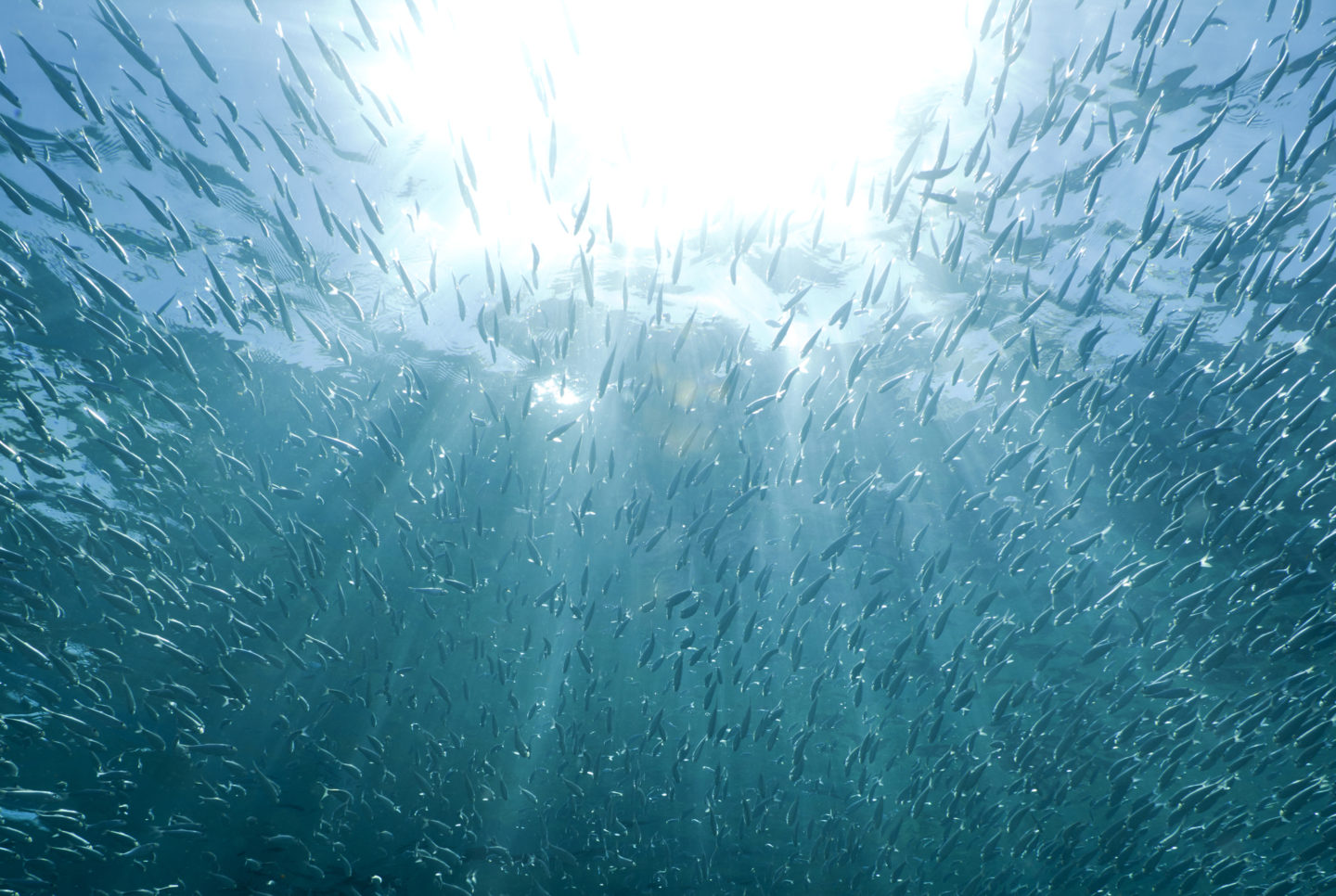The oceans are being “plundered” for fish to feed farmed salmon in Scotland and around the world, according to a new report.
Millions of tonnes of sardines, anchovies, mackerel, herring, krill and other species are caught and ground into fishmeal and fish oil, known as FMFO. This is fed to salmon caged in hundreds of farms along the west coast.
Now an 80-page report by campaign groups, Changing Markets Foundation and Compassion in World Farming, warns that growing dependence on FMFO is threatening human food security, putting marine wildlife at risk and harming animal welfare.
The report, however, has been attacked by the international FMFO industry as “unbalanced”, “biased” and “inaccurate”. The industry insists that the majority of FMFO is “responsibly sourced”.
Mass deaths: nine million fish killed by diseases at Scottish salmon farms
The new report says that almost a fifth of the world’s total catch of wild fish is currently processed into FMFO, most of which is used to feed farmed fish. The global fishmeal market was worth approximately £4.6 billion in 2017.
Pressures to catch more are likely to increase as the fish farm industry expands. The United Nations Food and Agriculture Organisation has predicted that global production of farmed fish will reach 109 million tonnes by 2030, and provide 60 per cent of the world’s fish consumption.
The fish farming industry argues that it has the potential to deliver affordable, healthy protein. This can be done, it says, with little carbon pollution while reducing the overexploitation of wild fish for human consumption.
But the industry is failing to deliver on these promises, the report claims. “Grinding wild fish into FMFO to feed a growing aquaculture industry raises concerns of overfishing, poor animal welfare and disruption of aquatic food webs,” it concludes.
“It also undermines food security, as less fish is available for direct human consumption. Given the rapid growth of the sector, it is clear that the aquaculture industry’s business-as-usual approach is pushing marine resources beyond planetary boundaries and disregarding the welfare of hundreds of billions of sentient animals.”
Campaigners are calling for salmon companies working in Scotland to mend their ways. “The farming of carnivorous fish such as salmon is putting huge pressure on wild fish stocks and poses a threat to food security in some of the world’s poorest countries,” Natasha Hurley from the Changing Markets Foundation told The Ferret.
“As one of the biggest global producers of farmed salmon, the Scottish aquaculture sector is playing a big part in this. We urge Scottish companies to do the responsible thing and take swift action to phase out the use of wild-caught fish in feed.”
This was possible, she insisted. “We are calling on aquafeed producers to switch to sustainable alternatives that do not give rise to other ecological problems.”
According to the report, up to 45 mostly Chinese-owned fishmeal factories have been built along the West African coast from Senegal to Mauritania in recent years. This has led to more than half the fish in the region being over-exploited, it says.
Compassion in World Farming argued that there had been a “huge impact” on animal welfare. “As industrial aquaculture grows, the number of animals suffering in these intensive farming systems multiplies and brings in another hidden layer,” said the group’s head of fish policy, Dr Krzysztof Wojtas.
“Most people are not aware of the additional suffering of hundreds of billions of small fish that die horribly on huge industrial fishing vessels in order to fuel these underwater factory farms. The industry must urgently address this crisis.”
The Scottish salmon farmed industry accepted that it needed more alternatives to wild-caught fish. “Scottish salmon farming produces a nutritious food and a valuable source of essential Omega 3 fatty acids,” said the chief executive of the Scottish Salmon Producers Organisation, Julie Hesketh-Laird.
“As a sector, we are committed to the use of fish feed made from responsibly sourced ingredients from strictly managed or certified fisheries to support healthy salmon growth and provide human health benefits.”
She added: “We agree with the authors of the report that the search for fish-free aquafeed products needs to be scaled up and reinforced across the sector.
“We wish to work with those with an interest in the sustainability of feeds, alongside the sector’s feed producers, to bolster the ongoing work into the use of novel and other sustainable raw materials like seafood trimmings and certified soy as replacements for marine-sourced ingredients.”
IFFO, the international trade organisation that represents the fishmeal and fish oil industry, issued a detailed statement criticising the new report. It pointed out that a study by the independent Sustainable Fisheries Partnership in 2018 had concluded that 91 per cent of FMFO stocks studied were “reasonably-well managed, or better”.
“IFFO is disappointed to read an inaccurate document which ignores the facts and realities of the fishmeal and fish oil sector,” said IFFO director general, Petter Martin Johannessen.
“The majority of wild-caught fish is responsibly sourced and is an essential resource in support of global protein production. Moreover the use of trimmings and byproduct from seafood processing represents at least 33 per cent of total world fishmeal production, that would otherwise predominantly go to landfill.”
He added: “IFFO rebuts the allegations contained in this report and provides a full analysis on its website.”
IFFO technical director, Neil Auchterlonie, described the new report as “unbalanced”. The authors had “sided with some of the most uninformed players” in the community of non-governmental organisations, he said.
“Changing Markets Foundation appear to be well resourced, producing a glossy document and running a campaign via social media. Given the weakness of their arguments, they perhaps should have spent more of that resource on determining the facts and realities of the fishmeal and fish oil sector, rather than developing their own biased narrative.”














